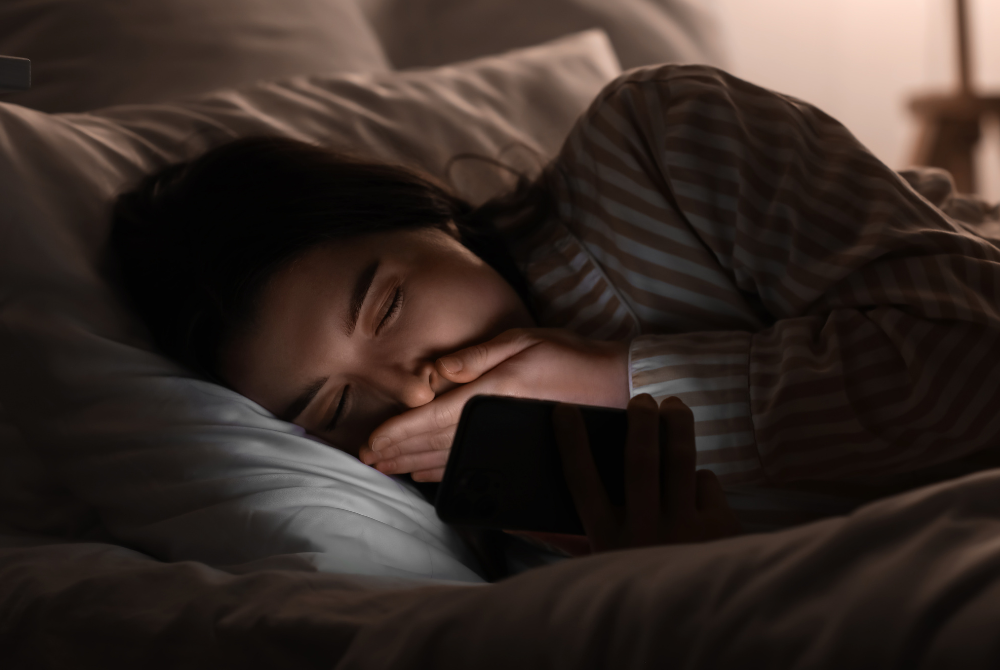Sleep deprivation throws your hormones off balance, says expert
SHARIFAH SHAHIRAH
Have you ever spent the night tossing and turning, only to wake up feeling like a grumpy monster the next day?
Well, it turns out that lack of sleep can mess with more than just your energy levels. Sleep deprivation wreaks havoc on your body in all sorts of ways, and one of the biggest targets? Your hormones.
Yup, we're talking about hormones. You see, when you don't get enough shut-eye, your body's hormone balance gets haywired, and that can lead to a series of other health issues.
From a scientific standpoint, sleep is vital for regulating a symphony the balance of hormones within our bodies, including cortisol, insulin, leptin, and ghrelin.
According to research on medical website National Library of Medicine, chronic sleep deprivation can also cause your body to become resistant to cortisol, which can result in a range of health problems, including obesity, diabetes, and heart disease.
Is this true? Rosewood Clinic founder and medical director Dr Iman Thalia emphasised insufficient sleep isn't merely about feeling fatigued, however it's a condition that can profoundly affect overall health.
Dr Iman further said lack of sleep could disrupt our hormonal balance by increasing cortisol, the stress hormone, which can leave us feeling tense.
She added that it can also disrupt insulin, the hormone responsible for regulating blood sugar levels, potentially causing cravings and weight gain.
“In functional medicine, we understand that sleep is foundational for health.
“Reduced sleep certainly does interfere with our hormones, it's a bit like not charging your phone properly where things start to malfunction,” she told Sinar Daily.
She stressed that sleep deprivation can elevate stress hormones, interfere with hunger regulation, and impair the body's growth and repair mechanisms.
Hence the decrease in growth hormone production, which is crucial for repair and regeneration, can impact everything from our mood to our metabolism.
Dr Iman suggested a general recommendation for most adults is between seven to nine hours of quality sleep per night. She stressed that achieving this involves maintaining a consistent sleep schedule, creating a restful environment, and, perhaps most importantly, allowing for wind-down time without screens before bed.
She also highlighted the importance of daily habits such as regular exercise and sunlight exposure during the day to help regulate the body's natural sleep-wake cycle.
“For insomnia or to improve sleep quality, I suggest starting with lifestyle adjustments. This includes reducing caffeine and alcohol intake, especially in the hours before bedtime.
“Also, establishing a calming pre-sleep routine can be effective – maybe some light stretching, deep breathing, or meditation to signal to your body that it's time to rest,” she added.
Dr Iman also urged that if these steps don't alleviate sleep issues, considering a functional medicine consultation may be beneficial to address possible underlying causes. She said sleep is a complex process influenced by various factors, including diet, stress levels, and gut health.
The undeniable impact of sleep on our hormones stressed the importance of prioritising quality rest. By doing so, we can ensure optimal function of these chemical messengers, promoting harmony in both our bodies and minds.
Therefore, dim the lights, power down electronics, and create a relaxing bedtime routine as you can develop a personalised sleep plan to optimise your hormones and lead a healthier, happier life.











